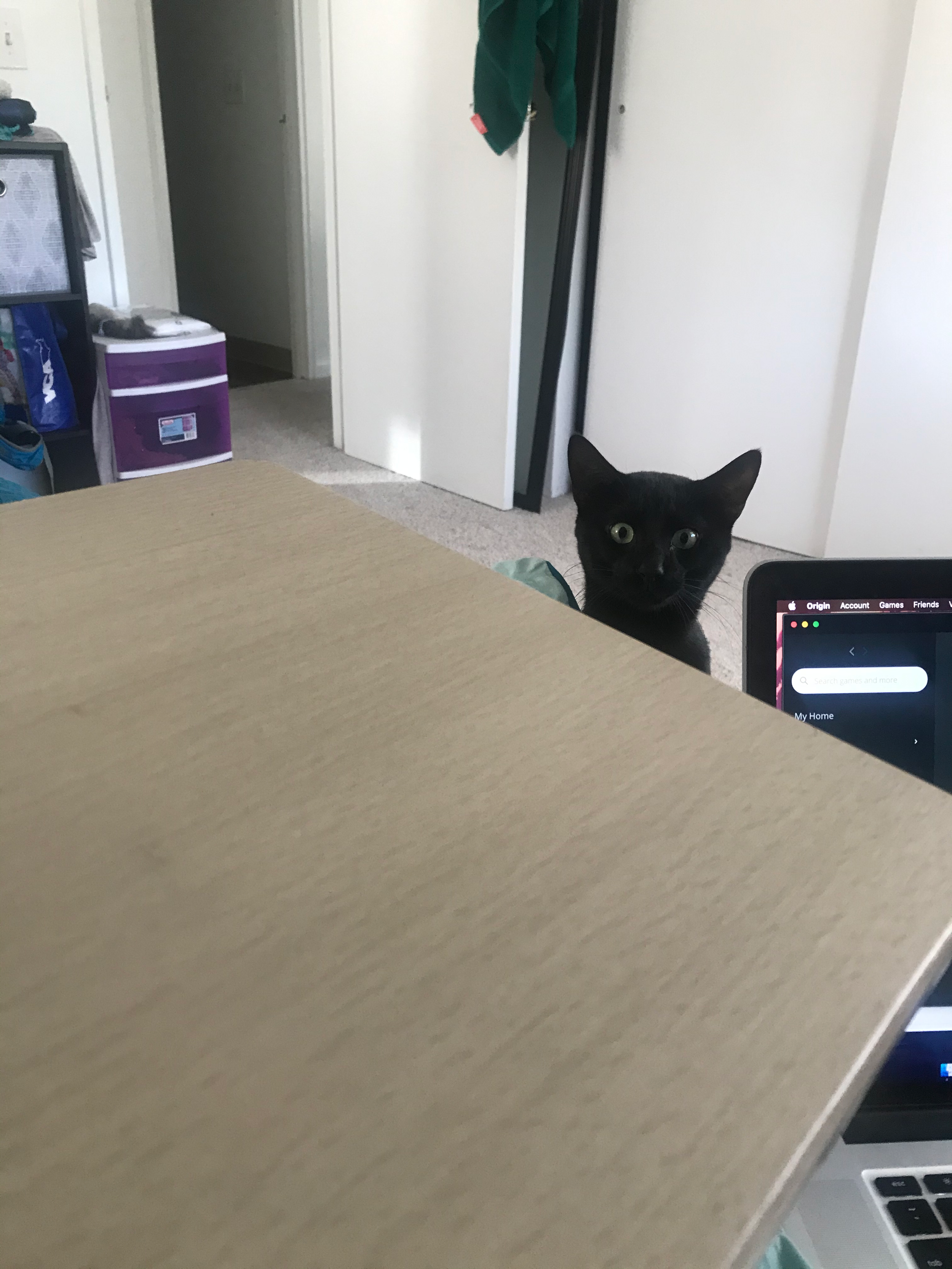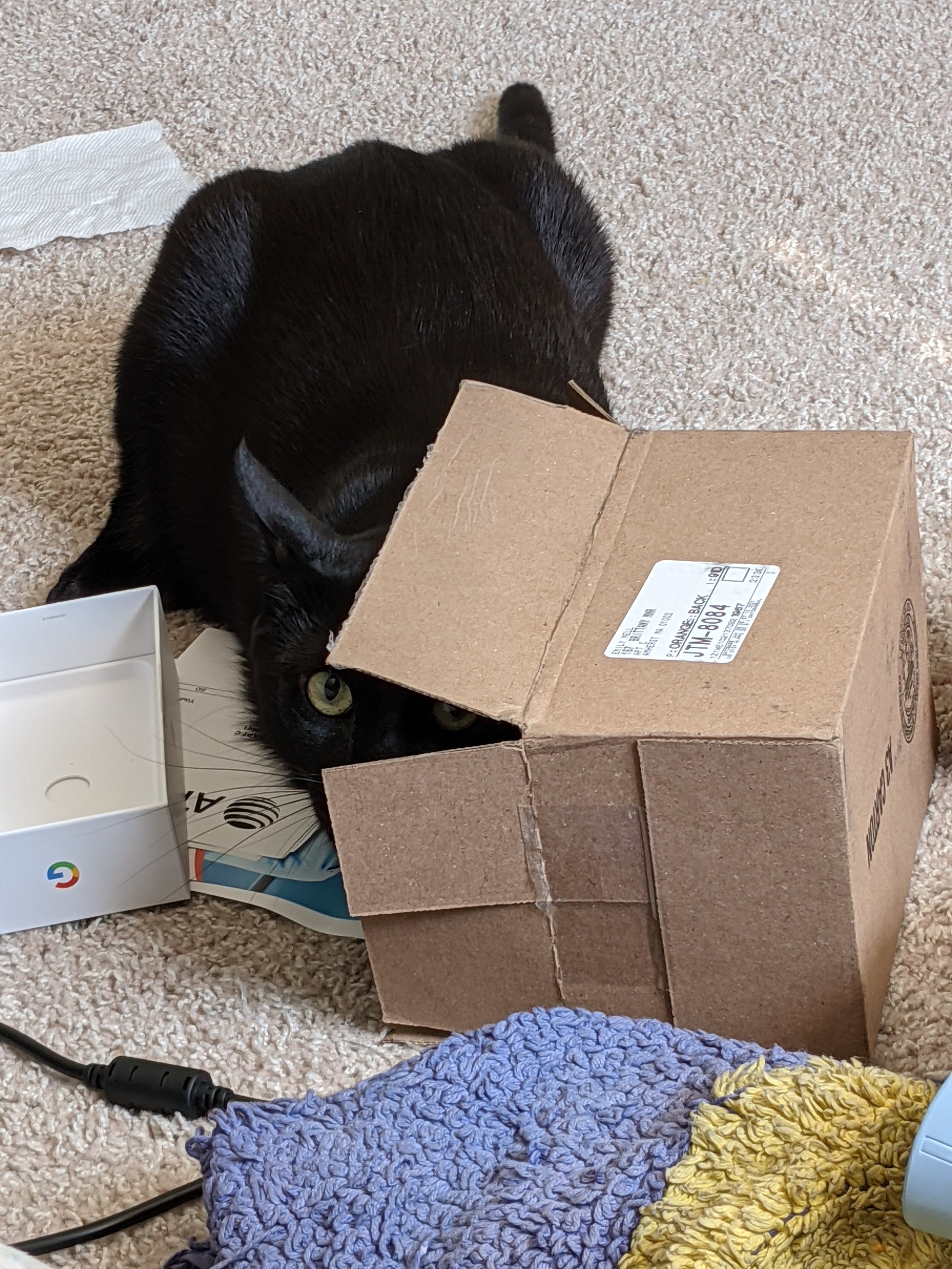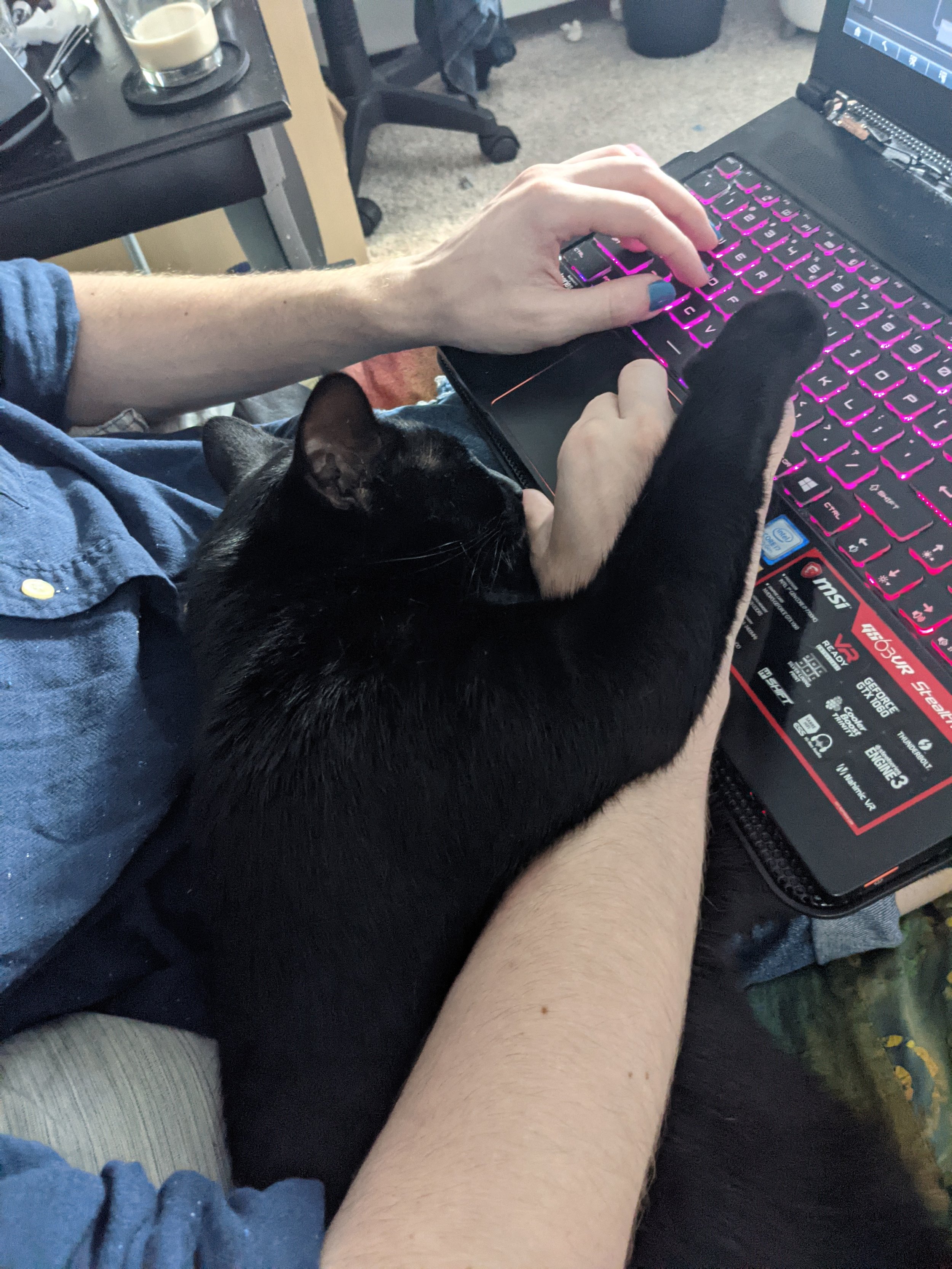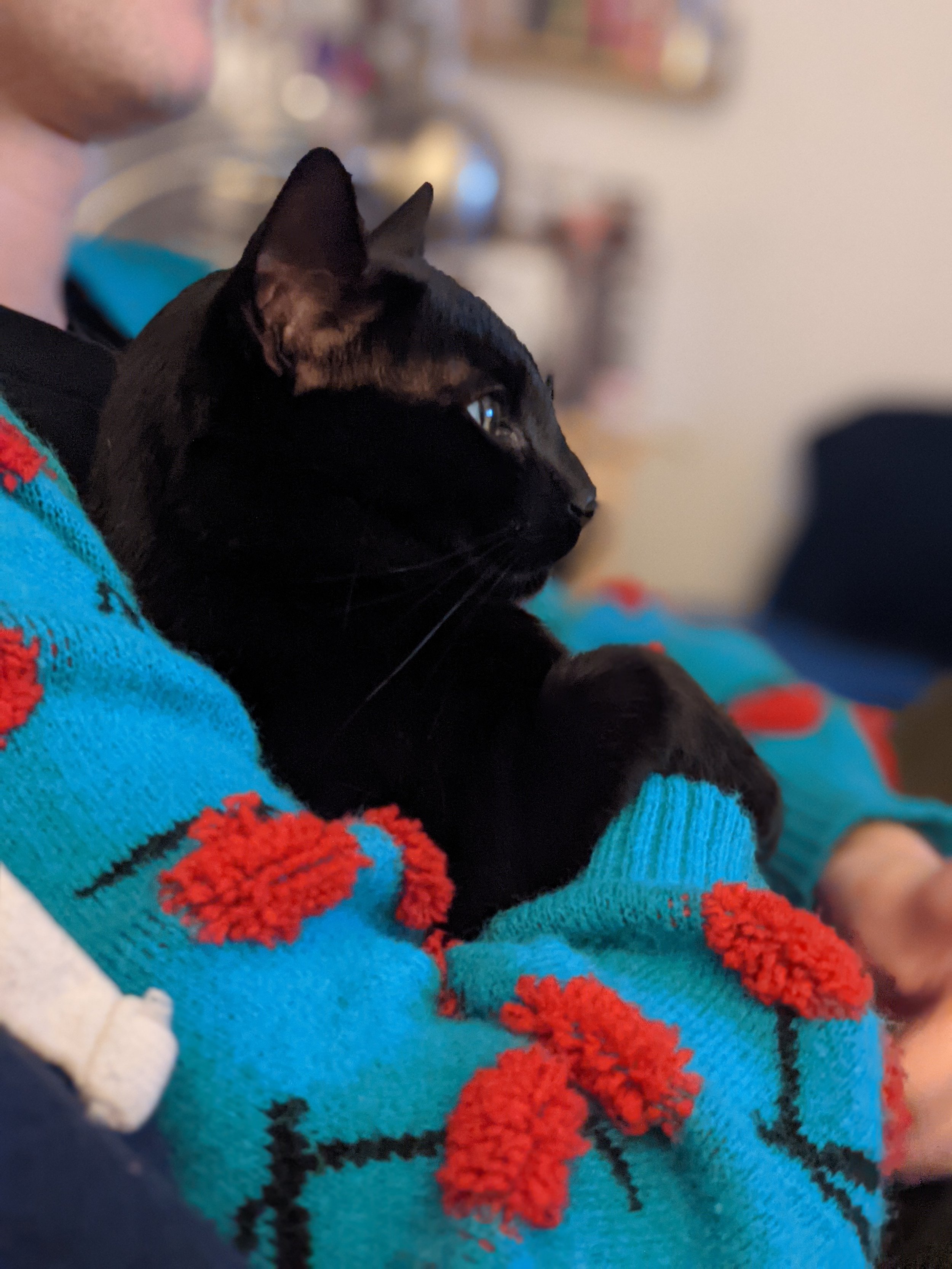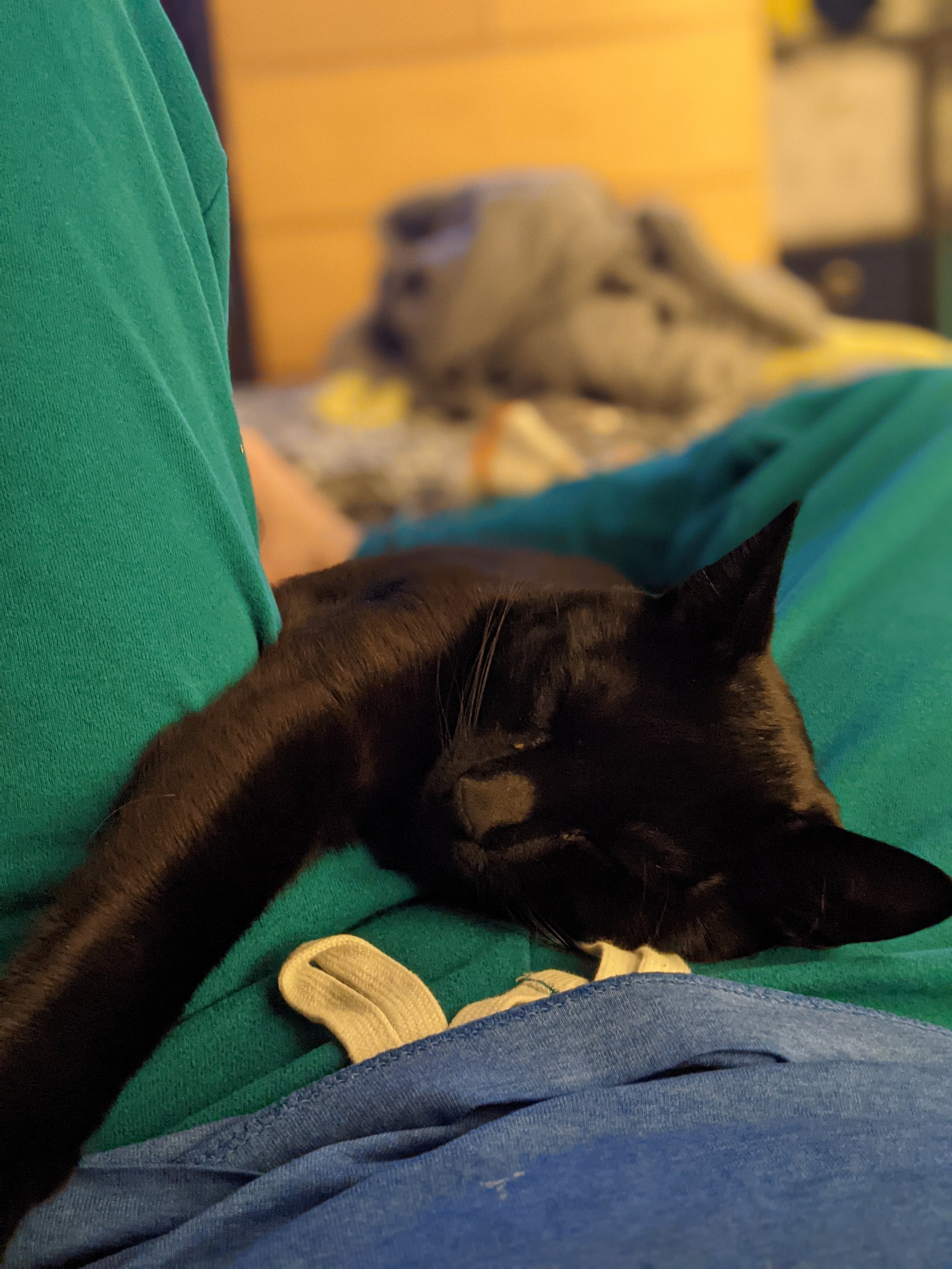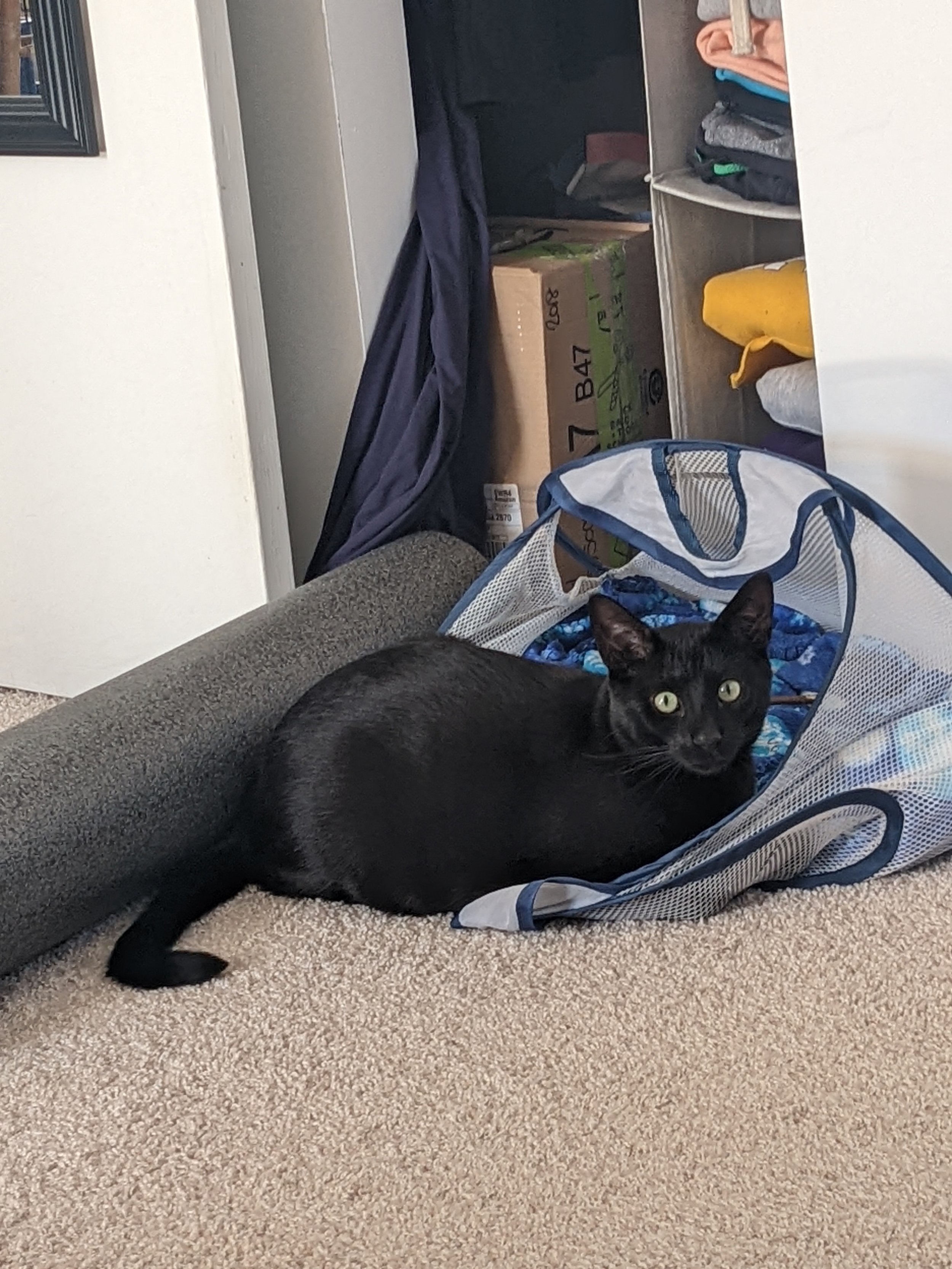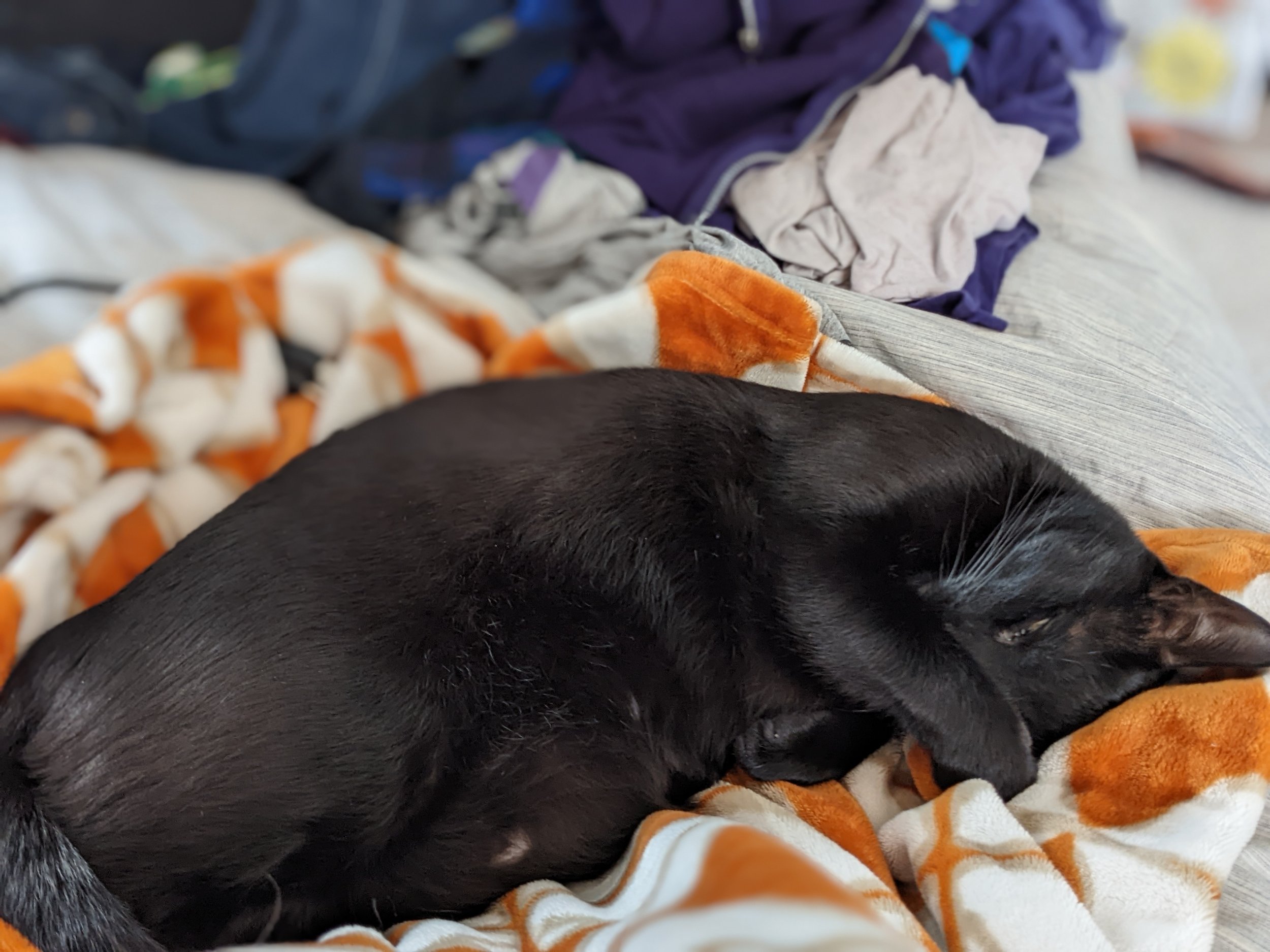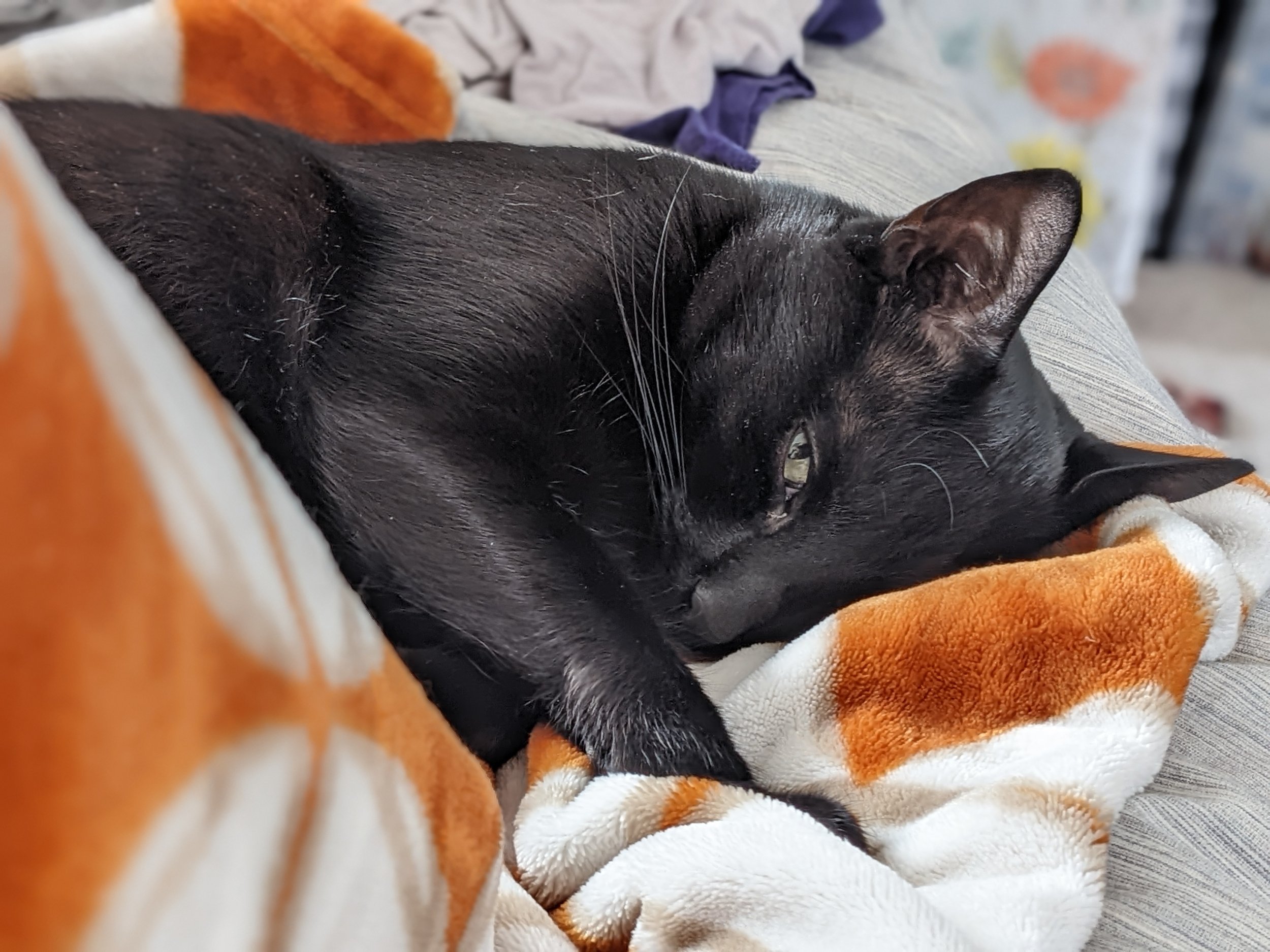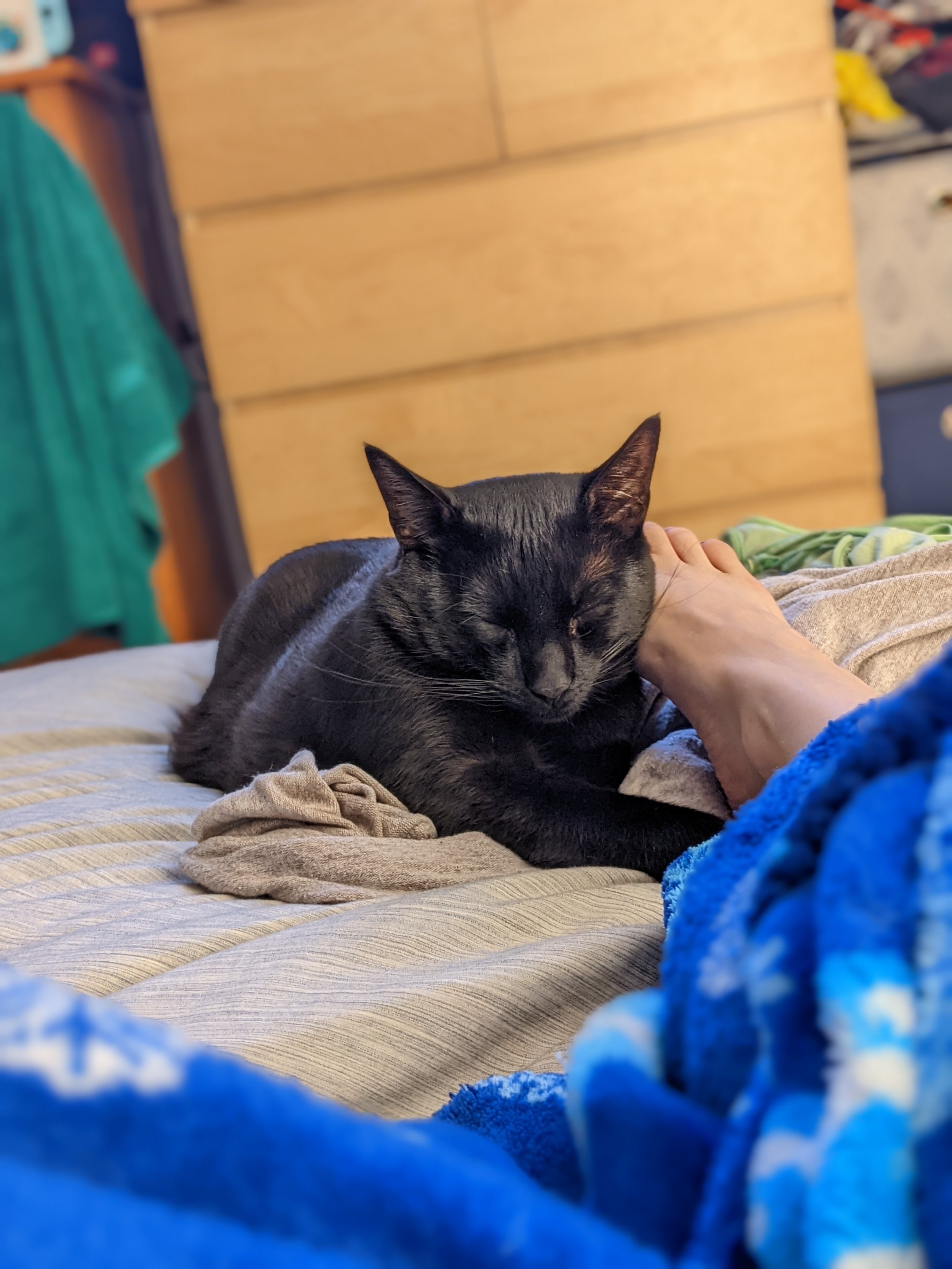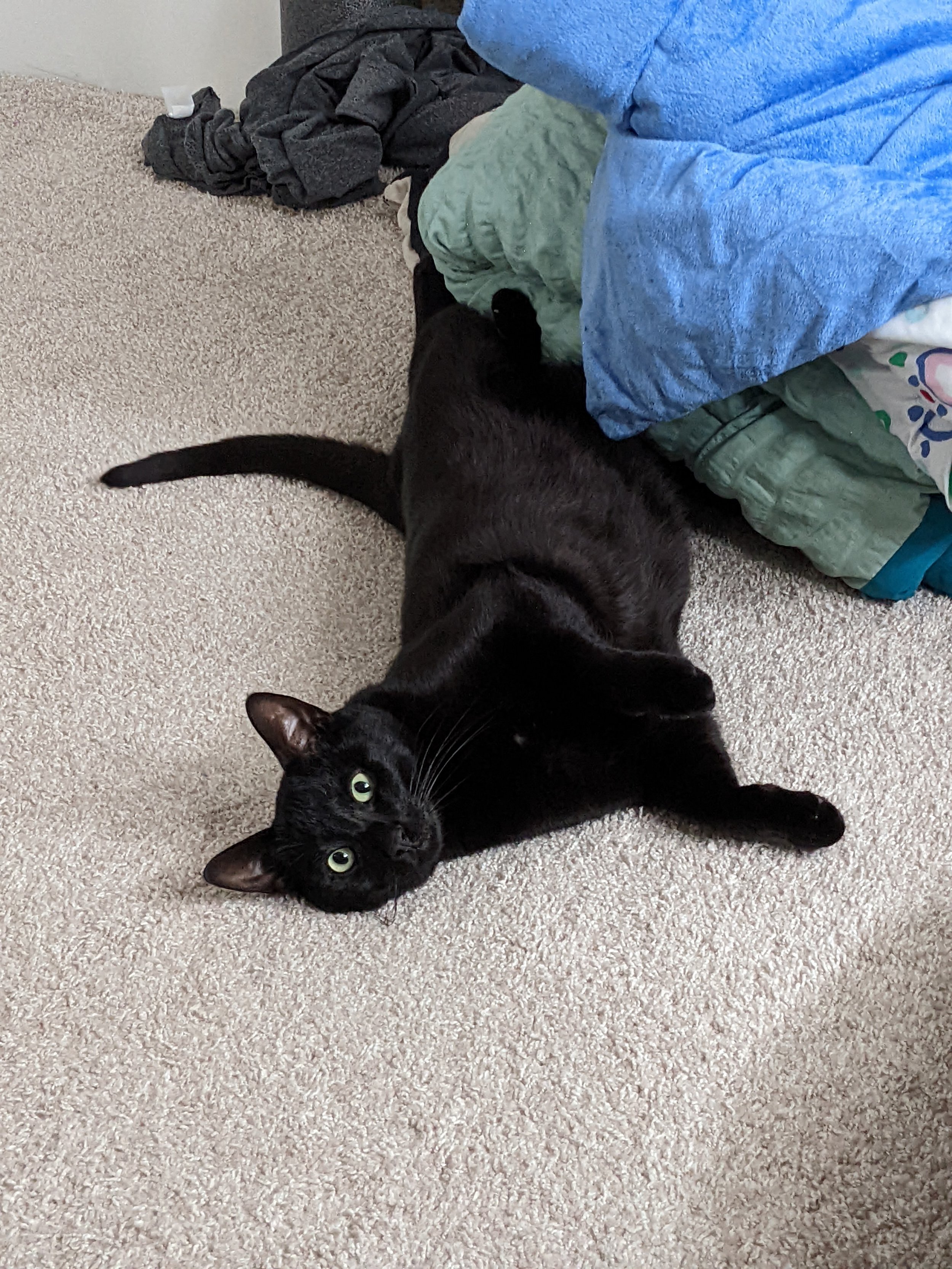Autonomous, written by Annalee Newitz and published by Tor books in 2017, is a cyberpunk novel without all the high-saturation bells and whistles. This book gets to the heart of what cyberpunk is actually about, but wrapped in a (usually) more subtle package. This is a book that asks us what it means to be free when anything and anybody can be owned.
This is a future in which androids and robots and AI are ever present and fulfill as many roles in society as their human counterparts. But because androids are “property,” despite cognizance, the argument was ultimately made that, well, if we could own androids for “indentured service,” then why can’t they do the same thing with people? And it worked, because I guess humans are just destined to suck forever. (Why couldn’t I have just been born a jellyfish? Nobody asked me.)
There were a lot of things that I really liked about this book, and then there were some things that I still have major reservations about, even while I try to step back and think about what Newitz ultimately said, rather than what I think she should have said. Because the way that I’m approaching the one particular element in mind (I’ll get there, hold your horses) is definitely not the only way to approach it. So we’re going to work on that in a little bit.
In particular, I liked the prose. I thought that it read well; its details were compelling and its descriptions vibrant. There is a lot going on in every single setting we encounter in this book, a lot wrapped up in every social interaction between both bots and humans. I think its ideas were solid, and I think it did cyberpunk really, really well. It’s understated in a lot of ways and extravagant in a lot of others, the balance of which felt good at least most of the time. And while I will say the plot wraps up nicely, I don’t think the book’s ideas do. I actually found the conclusion to be… somewhat lacking, really. Anti-climactic, in a way. It felt rushed, perhaps.
Let’s talk setup and plot
Autonomous is a dual-narrative novel told from a rotation of perspectives. Judith “Jack” Chen is an anti-patent scientist turned drug pirate. To contextualize, pretty much every major disease has a cure at this point, as well as the bulk of the more minor ones. Medications and drugs are patented, which means that hospitals and pharmacists can “print” the meds, but for the cost of the patent. For each pill fabricated. Which means that unless you’re wicked rich, you will most likely have to sell yourself into slavery—oh, excuse me, indenture—in order to pay for them.
And once you’re indentured, good luck ever getting out of it again. Because your contract can be bought and sold at any time, and then the terms entirely changed. People with only a year or two left on a contract will easily find themselves traded off to somebody else and now facing another 7 year term. You see what’s building here? Yeah. So the only way to escape this is to be lucky enough to own a “franchise” by the time you come of age. This isn’t closely examined, more mentioned in passing, because the book isn’t about persons born free; it’s about beings fighting for freedom—even those persons who were never subjected to indenture find themselves in a bloody battle against capitalism and big pharma. And the vast majority of androids, despite being promised eventual autonomy, never see it, contracts passed along and changed as necessary for the new owner’s satisfaction.
There are points throughout this book that are designed to make you uncomfortable, and I’m here to tell you that they accomplish the task.
This book is set a little more than 20 years into our future, and every day that passes only makes this whole thing feel more and more plausible, but such is the nature of cyberpunk.
Okay. Jack Chen. Anti-patent scientist turned drug pirate. She replicates life saving medications for poor people without appropriate access. She also fabricates “designer drugs” to pay the bills, thereby enabling her to manage the whole Robin Hood thing. Enter the A plot:
Jack has reverse engineered a new designer drug called Zacuity, created by one of the biggest and most powerful pharma companies in the world, which turns out to be addictive. And so because her reverse-engineered replica is molecularly identical, Jack sets off a sudden crisis, as people take this “Here’s Your Addiction! Enjoy!” drug to enhance their work performance—but then can’t stop doing that thing. It doesn’t end well for any of them.
Presenting the B Plot: Eliasz is a… hmm… think about him like if you crossed a mega-corp's security guard with a fed’s permission to do anything they want, and a cop’s belligerence, throw in some blatant homophobia, and you’ve basically got Eliasz. His robotic partner, Paladin, joins him on this mission to chase down Jack and, preferably, kill her on the spot. But, of course, along the way, the pair find themselves experiencing a… unique “bond.” Some of you may have guessed from the scare-quotes that this is where my mixed feelings lie for this book.
I’m not really going to get into Jack’s particular plotline too much because it generally worked pretty well and she was doing the best she could. There are points throughout this book that are designed to make you uncomfortable, and I’m here to tell you that they accomplish the task. But the discomfort reached new heights between Eliasz and Paladin.
Programming, free will, autonomy
Androids created into servitude (the vast majority of them), are coded to want to please their acting “master.” Which is to say that they are programmed from initial build to prioritize the wants, expectations, needs, etc, of another being before their own—and that the robot/android (none of the words ever feel right in this context, btw, because of the inherent erasure of Personhood, which is at the heart of this whole thing) will do things that it knows will make its current owner/master pleased with it.
Starting out pretty dicey. But it gets worse, because of course it does.
Not only are androids programmed to want to please their master first in whatever context that happens to be, they are also locked out of sections of their memories, not to mention any number of other feature or data locks. Alongside that, because they are a literal possession, they have no semblance of privacy, as their entire memories can be downloaded and wiped at any time, and for any reason. There are supposed to be protections put in place for some of these things, but humans possess a unique knack for cruelty, so don’t count on much.
Noooooooowwwwwwww, with all that under our belts, we have some new problems. When we are introduced to Paladin, we receive masc pronouns but, obviously, no other gender markers of any form. Because Paladin is a robot and doesn’t have a gender. And this genderlessness and human habit to anthropomorphize bots comes up again and again and again throughout the book, but it never comes up anywhere productive or useful. But good ol’ “I’m not a fag” Eliasz determines he has feelings for this military-grade buff-ass robot, so therefore the brain in Paladin’s carapace must have been a woman’s.
Many androids, particularly those intended to interact with humans, are fitted with a human brain in their abdomen, which functions exclusively to process and contextualize human body language and facial expressions, which are anything but logical or consistent. The brain obviously belonged to a human at some point, but we don’t talk about how the brains go from skulls to android guts. At Eliasz’s weird, emotional behest, Paladin does the work to discover that his was once in a woman’s skull, which is all the proof Eliasz needs that having feelings for / being attracted to Paladin is totes above board. “I knew I wasn’t a fag.” (<—not quite a word-for-word but close enough.) And when Eliasz asks, Paladin agrees that she’d like to take femme pronouns instead now. It made him happier, after all.
Okay. So now we’re here, at a human/android romantic relationship. Sorta. And Eliasz wants Paladin to… experience… sexual pleasure. Which… you know, isn’t a thing for the ol’ robot. So as a workaround, Paladin downloads a virus off the internet to crash her entire system. She concludes that this peculiar sensation is enjoyable, and she and Eliasz code it as an orgasm. Which is…
I told you at the start, I have problems here, people.
Look, as I said at the top: The book is well written. The imagery is fantastic and it is the exact amount of anti-capitalist that cyberpunk should be (looking at you, failure of a decade-awaited video game). It is rooted in the communal drive for compassion and aid and collaboration, for unilateral betterment of society instead of whatever makes money fastest. It is pitted against corporate greed and academic weakness for political sway. Even Eliasz, government-funded terrorist that he is (it takes very little effort to come to that descriptor, you’ll find), comes to his job from a place of compassion and righteousness. He moved from city police to international agent without limits to save trafficked children that he wasn’t able to help before. And like, cool, good for you, but I don’t see how murdering your way across the globe to catch one person is closing that gap for you.
So I guess it’s just… if we’re engaging with the notion that androids are also people deserving of freedom and right to life, which we’re doing, then Paladin’s relationship with Eliasz is questionable at best. And while I’m saying this, I have a voice calmly asking me to slow down. Because when Paladin ultimately achieves autonomy and has the space to really examine these things, she determines that their presence even after the autonomy key implies they are hers, not programming. And when her autonomy is made permanent, she chooses to stay with Eliasz and they’re happy together. And I want to be happy for them, but I just… can’t quite get myself there. Which leaves me in the sticky position of Unsure whether asshole because I feel A instead of B, or if asshole because feeling good about B is ignoring whatever else.
But if I’ve gotta pick a stance, I’m settling on “Ew.” Because I really think it’s problematic! And kinda gross!
Let’s take a step back now
There is a huge cast of characters in Autonomous, the majority of whom all play key roles in the layout and propulsion of the plot. And I don’t want to act like none of them are more important or interesting than the above issues with autonomy in relationships, because I would actually argue the opposite. But you know how when you’re reading a book but one thing is really distracting you so when you’re done it’s really all you’ve held onto? That’s kind of where I’m at. Even after insisting that I did enjoy the bulk of this book, I’m just left a bit dissatisfied. I’ll give it at least 3.5 stars, if not 4, because I’m far more invested in a book that makes me really think about the ideas it’s positing than I am in a book that tells me exactly what to think about a situation. Even if I don’t agree with the conclusion of the idea put forth, I just want to see a book engage with something important. And Autonomous absolutely does that.
I haven’t really gotten into the queerness of this book, which is probably not the best in a queer-focused blog, but it’s everywhere throughout this novel. Truthfully, Eliasz is the only character who is ever posited with an actual opinion on sexuality; otherwise, everyone seems to be rather fluid. Jack canonically doesn’t care about gender in her sexual partners, and neither does anyone around her, really. It’s the genderless android-plus-human relationship that we really have to work with in Autonomous, and I am absolutely 100% not taking this into a mirror or whatever for being in a relationship with an Ace person. Because comparing asexual/agender persons to robots is pretty tasteless? And Newitz is not making that parallel on page at any point, just to make that clear. But when it’s put in front of you as above, it’s easy to make that mental leap. There is so much about this book that is queer that there really isn’t anything in the book that isn’t somehow or another. Especially surrounding the one, singular homophobic character.
Don’t read Autonomous for answers; read it for the questions. Read it for the what-ifs and the what-thens. Read it for the prescient critique of advanced capitalism. Read it to think about what personhood and agency and autonomy and ownership and property mean in a global society. Read it to think about how you treat other people and how you approach labor. But do read it.














